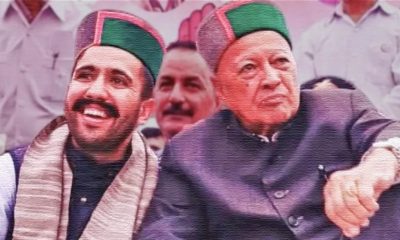Nation
Fugitive Economic Offenders Bill, 2018 approved, will force offenders to return India and face trial, says Centre Govt
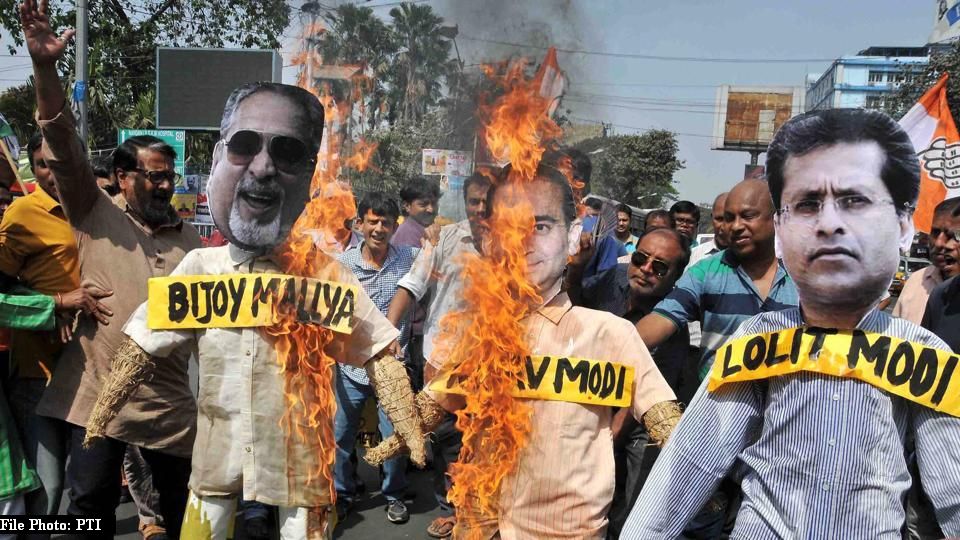
New Delhi: Amid PNB fraud row, the government has come up with a Bill to deter economic offenders from evading the process of Indian law by remaining outside the jurisdiction of Indian courts. The Union Cabinet has approved the proposal of the Ministry of Finance to introduce the Fugitive Economic Offenders Bill, 2018 in the Parliament.
The Bill makes provisions for a Court (‘Special Court’ under the Prevention of Money-laundering Act, 2002) to declare a person as a Fugitive Economic Offender.
The cases where the total value involved in such offences is Rs.100 crore or more will come under the purview of this Bill.
Purpose of the Fugitive Economic Offenders Bill, 2018 Bill
The Bill is expected to include measures to compel the fugitive economic offenders to return to India to face trial for scheduled offences.
The government claimed it would also help the banks and other financial institutions to achieve higher recovery from financial defaults committed by such fugitive economic offenders.
It is expected that the special forum would be created for an expeditious confiscation of the proceeds of crime, in India or abroad. It would coerce the fugitive to return to India to submit to the jurisdiction of Courts in India to face the law for their offences, claimed the government.
What does Fugitive Economic Offender mean
A Fugitive Economic Offender is a person against whom an arrest warrant has been issued in respect of a scheduled offence and who has left India so as to avoid criminal prosecution, or being abroad, refuses to return to India to face criminal prosecution.
What are Scheduled offence
As per the government, a scheduled offence refers to a list of economic offences contained in the Schedule to this Bill. Further, in order to ensure that Courts are not over-burdened with such cases, only those cases where the total value involved in such offences is 100 crore rupees or more, is within the purview of this Bill.
Silent features of the FEO Bill, 2018
- Application before the Special Court for a declaration that an individual is a fugitive economic offender;
- Attachment of the property of a fugitive economic offender;
- Issue of a notice by the Special Court to the individual alleged to be a fugitive economic offender;
- Confiscation of the property of an individual declared as a fugitive economic offender resulting from the proceeds of crime;
- Confiscation of other property belonging to such offender in India and abroad, including benami property;
- Disentitlement of the fugitive economic offender from defending any civil claim; and
- An Administrator will be appointed to manage and dispose of the confiscated property under the Act.
Conditions
If at any point of time in the course of the proceeding prior to the declaration, however, the alleged Fugitive Economic Offender returns to India and submits to the appropriate jurisdictional Court, proceedings under the proposed Act would cease by law.
All necessary constitutional safeguards in terms of providing hearing to the person through counsel, allowing him time to file a reply, serving notice of summons to him, whether in India or abroad and appeal to the High Court have been provided for.
Further, provision has been made for the appointment of an Administrator to manage and dispose of the property in compliance with the provisions of law.
There have been several instances of economic offenders fleeing the jurisdiction of Indian courts, anticipating the commencement, or during the pendency, of criminal proceedings.
The absence of such offenders from Indian courts has several deleterious consequences – first, it hampers investigation in criminal cases; second, it wastes precious time of courts of law, third, it undermines the rule of law in India.
Further, most such cases of economic offences involve non-repayment of bank loans thereby worsening the financial health of the banking sector in India.
The existing civil and criminal provisions in law are not entirely adequate to deal with the severity of the problem. It is, therefore, necessary to provide an effective, expeditious and constitutionally permissible deterrent to ensure that such actions are curbed.
It may be mentioned that the non-conviction-based asset confiscation for corruption-related cases is enabled under provisions of United Nations Convention against Corruption (ratified by India in 2011). The Bill adopts this principle.
In view of the above context, a Budget announcement was made by the Government in the Budget 2017-18 that the Government was considering to introduce legislative changes or even a new law to confiscate the assets of such absconders till they submit to the jurisdiction of the appropriate legal forum.
Nation
Most Covid Restrictions to be Lifted From March 31, Mask and Hand Hygiene to Continue
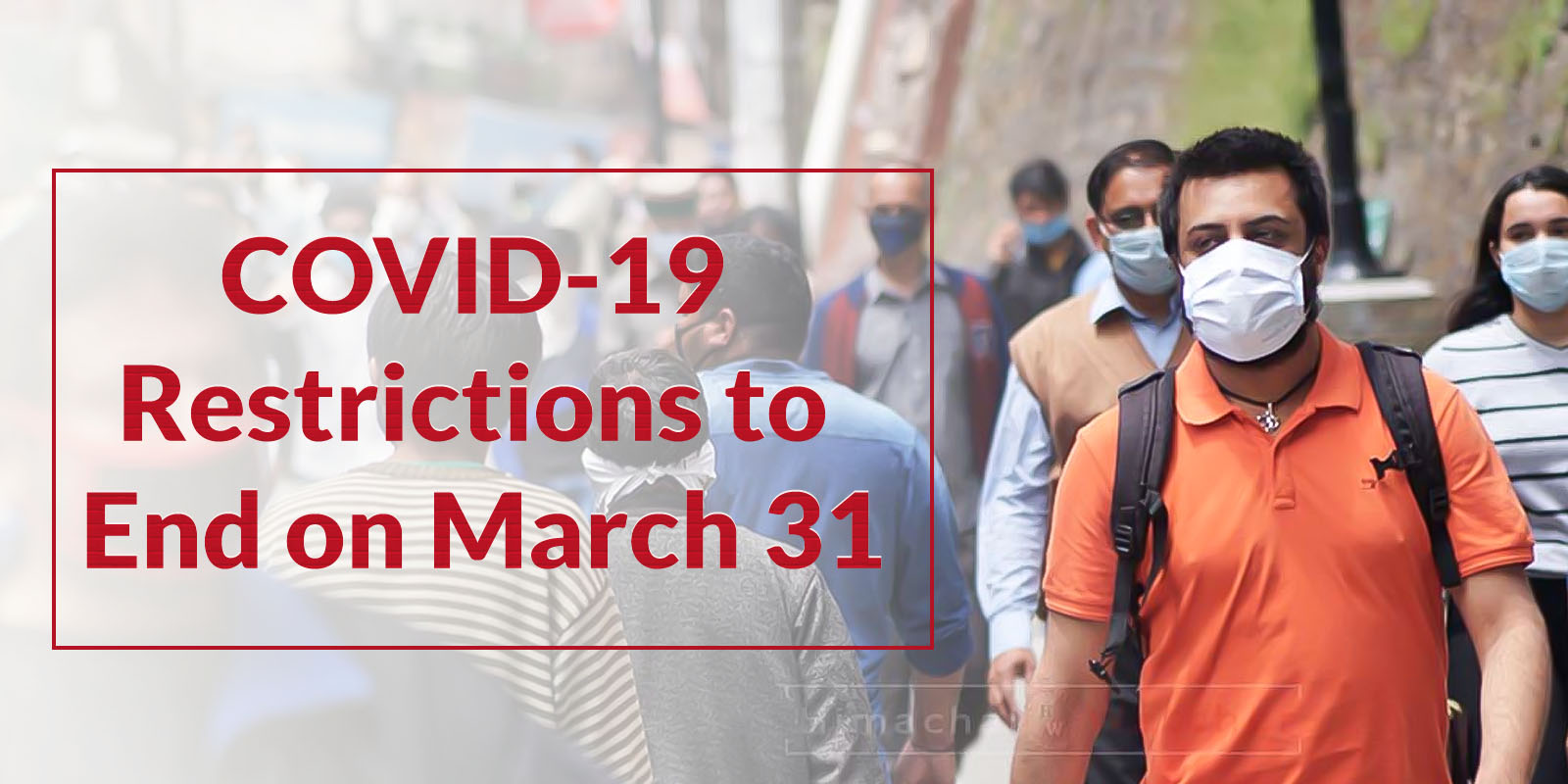
New Delhi-The Centre has issued a notification to the States informing that the provisions of the Disaster Management (DM) Act, 2005 will not be invoked in the country after March 31. The Union Health Ministry said that the use of face masks and following hand hygiene will continue.
It implies that most of the Covid-related rules and restrictions would end.
Union Home Secretary Ajay Bhalla issued the notification which said that the decision was taken following the overall improvement in the situation and the preparedness of the government in dealing with the COVID-19 pandemic.
However, local authorities and State police can still invoke fines and criminal cases against persons violating COVID-19 norms under the Indian Penal Code (IPC), a senior government official said.
The DM Act was invoked on March 24, 2020, due to the pandemic
“Over the last seven weeks or so there has been a steep decline in the number of cases. The total caseload in the country stands at 23,913 only and the daily positivity rate has declined to 0.28%. It is also worth mentioning that with the combined efforts, a total of 181.56 Cr vaccine doses have been administered,” the notification said.
“I would like to mention that in view of the nature of the disease, we still need to remain watchful of the situation. Wherever any surge in the number of cases is observed, the States/UTs may consider taking prompt and proactive action at a local level, as advised by MoHFW (Health Ministry) from time to time,” the notification said.
The Indian government had issued various guidelines and measures for the first time on March 24, 2020, under the Disaster Management Act to curb the COVID-19 situation in the country, which have been modified several times thereafter.
India currently has 23,087 active COVID-19 cases and recorded 1,778 new cases and 62 deaths in the last 24 hours. The daily positivity rate has also declined to 0.28%.
Nation
Vaccination of 15-18 Year Age Group in India from Jan 3, Precautionary Dose for Frontline Workers from Jan 10
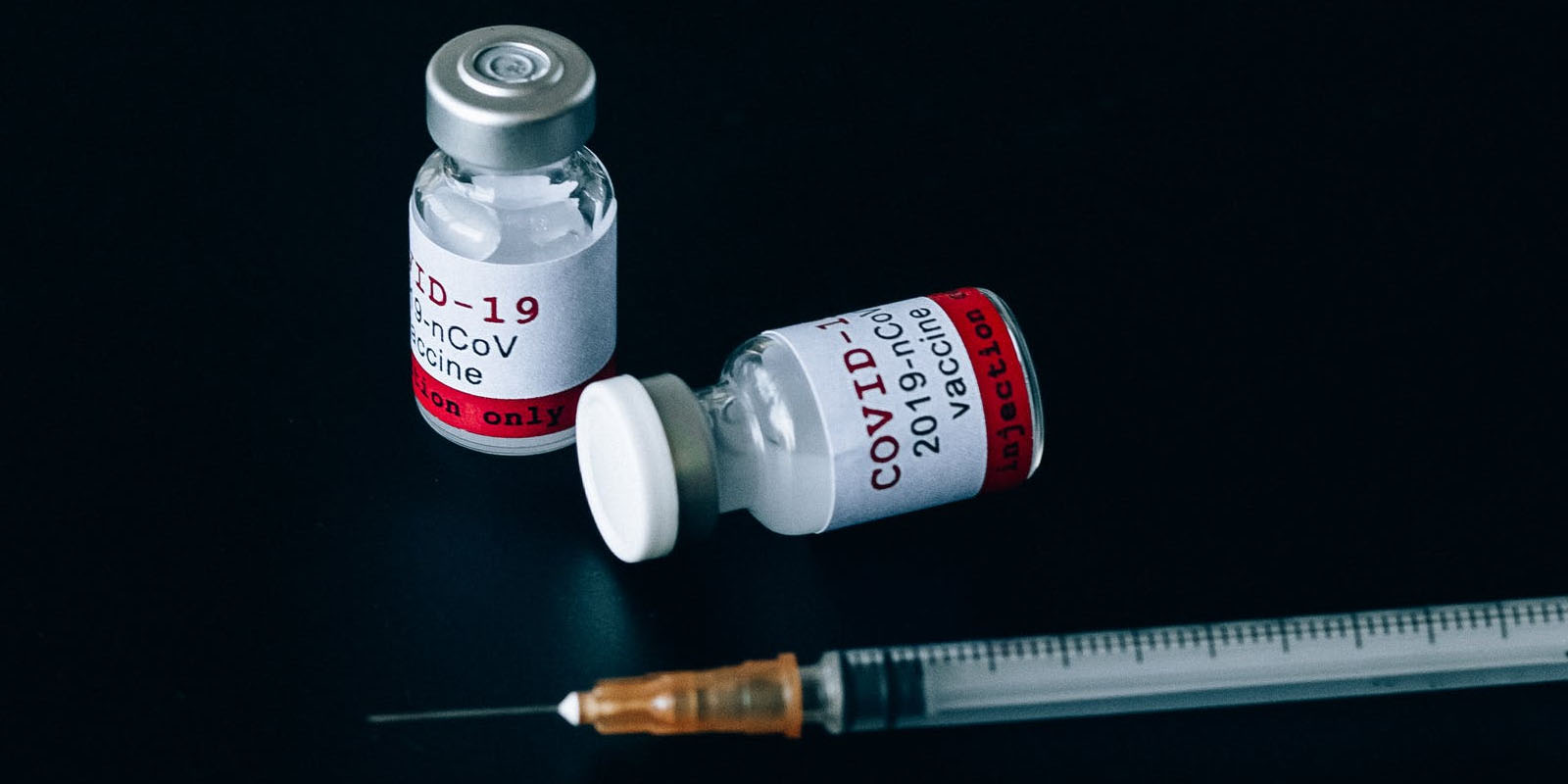
New Delhi-India will begin vaccination of the children in the age group of 15-18 years from 3rd January 2022. The move is likely to aid in education normalization in schools. The announcement was made by Prime Minister Narender Modi on Saturday evening. He also announced a precaution dose (booster dose) for healthcare and frontline workers from 10th January 2022, Monday.
In India, this has been called the ‘precaution dose’ not booster dose. An option of precaution dose will be available for senior citizens above 60 years of age with co-morbidities on the advice of their doctors from 10th January 2022.
Referring to the Omicron infections In India, the Prime Minister requested the people not to panic and to follow precautions such as masks and washing hands repeatedly.
According to the Government, the vaccination campaign started on 16th January this year has crossed the mark of 141 crore doses, and 61 percent of the adult population of the country has received both the vaccines and 90 percent of adults have received one dose.
According to the Government statistics, currently, the country has 18 lakh isolation beds, 5 lakh oxygen supported beds, 1 lakh 40 thousand ICU beds, 90 thousand ICU and Non-ICU beds especially for children, more than 3 thousand PSA oxygen plants, 4 lakh oxygen cylinders and support to states is being provided for buffer doses and testing.
The Prime Minister assured that soon the country will develop a nasal vaccine and the world’s first DNA vaccine.
Photo by Nataliya Vaitkevich from Pexels
Nation
Three Farm Laws to be Withdrawn, Announces PM Modi Ahead of Elections in Punjab and UP
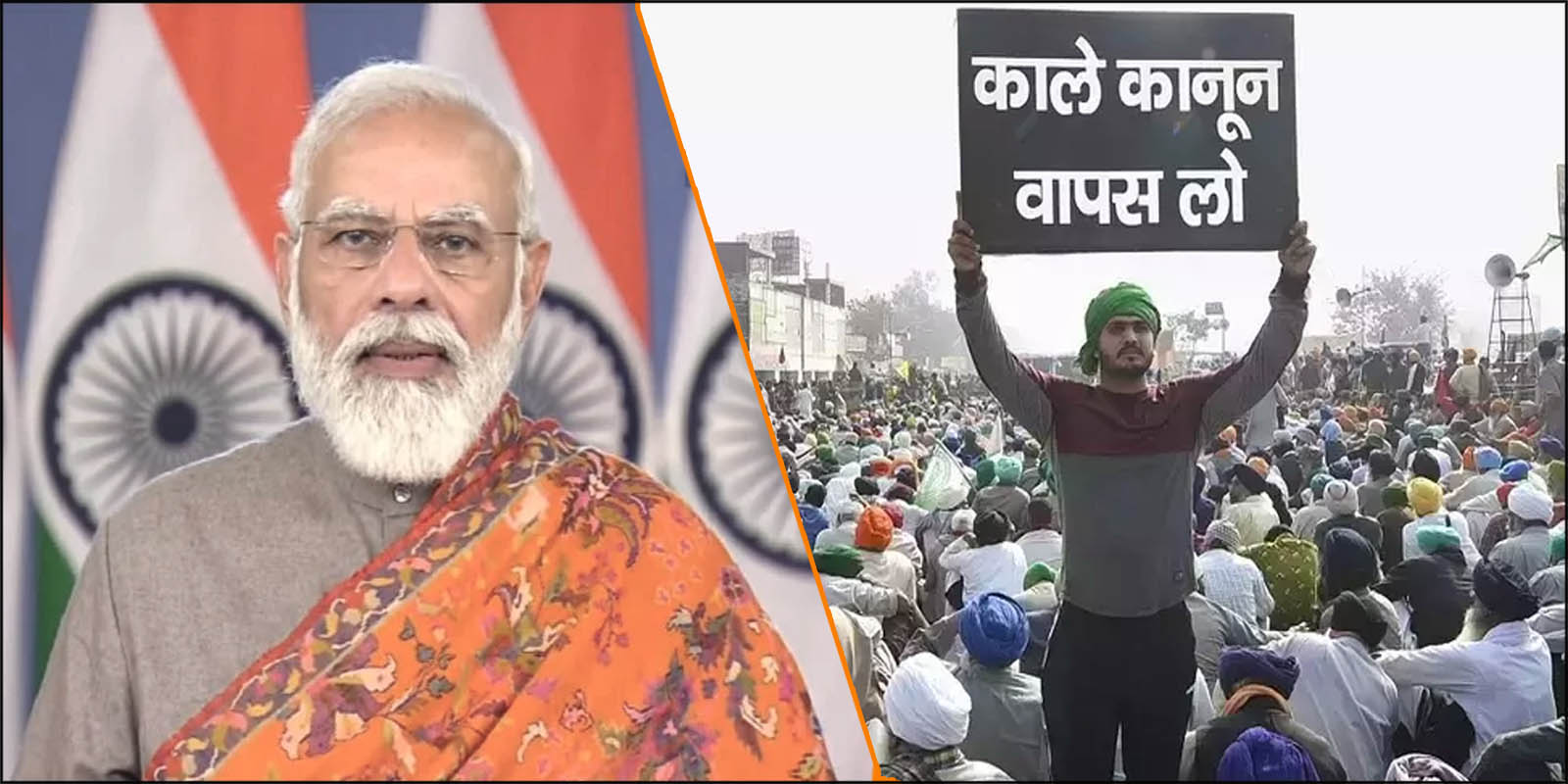
New Delhi: Ahead of assembly polls in Punjab and Uttar Pradesh, Prime Minister Narender Modi on Friday retreated from his stand on the three contentious farm laws and announced that the government will repeal three laws. He requested the protesting farmers to end the protest that has been going on for over a year now.
He said the three laws would be repealed in the winter session of Parliament starting later this month. He also said that though the laws were in the interest of the farmers, his government failed to convince them.
आज मैं आपको, पूरे देश को, ये बताने आया हूं कि हमने तीनों कृषि कानूनों को वापस लेने का निर्णय लिया है।
इस महीने के अंत में शुरू होने जा रहे संसद सत्र में, हम इन तीनों कृषि कानूनों को Repeal करने की संवैधानिक प्रक्रिया को पूरा कर देंगे: PM @narendramodi
— PMO India (@PMOIndia) November 19, 2021
The Prime Minister chose the occasion of Guru Nanak Jayanti to make this announcement. The decision is being perceived as an attempt to appease the farmers, especially in Punjab ahead of the assembly polls. Also, the results of by-poll held in various states are being seen as a setback to the ruling government that compelled it to reconsider its stand on the farm bills.
The Prime Minister said, “today I have come to tell you, the whole country, that we have decided to withdraw all three agricultural laws. In the Parliament session starting later this month, we will complete the constitutional process to repeal these three agricultural laws”.
It’s pertinent to mention that the Centre government had to announce a cut in taxes on petrol and diesel right after the results of bye polls were declared.
The three contentious bills are The Farmer’s Produce Trade and Commerce (Promotion and Facilitation) Bill, 2020, the Farmers (Empowerment and Protection) Agreement of Price Assurance and Farm Services Bill, 2020 and the Farmers’ Produce Trade and Commerce (Promotion and Facilitation) Bill.
The opposition Congress and farmers’ bodies have termed it a victory of their unity against the government’s decision. Former Chief Minister of Punjab, Captain Amarinder Singh was one of the first to welcome the decision through a Tweet.
Great news! Thankful to PM @narendramodi ji for acceding to the demands of every punjabi & repealing the 3 black laws on the pious occasion of #GuruNanakJayanti. I am sure the central govt will continue to work in tandem for the development of Kisani! #NoFarmers_NoFood @AmitShah
— Capt.Amarinder Singh (@capt_amarinder) November 19, 2021
यह जीत देश के किसानों की जीत है, लोकतंत्र की जीत है।
किसानों की जीत ने स्पष्ट कर दिया है- भारत में कभी तानाशाही हावी नहीं हो सकती, आखिर तानाशाह को झुकना पड़ा।#जीता_किसान_हारा_अभिमान pic.twitter.com/A9psOtBGq8
— Congress (@INCIndia) November 19, 2021








 Home Decor Ideas 2020
Home Decor Ideas 2020